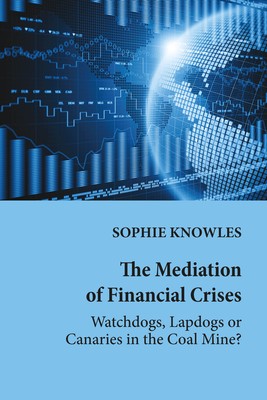
- We will send in 10–14 business days.
- Publisher: Peter Lang Inc., International Academic Publishers
- ISBN-10: 1433152304
- ISBN-13: 9781433152306
- Format: 15.2 x 22.9 x 1.3 cm, hardcover
- Language: English
- SAVE -10% with code: EXTRA
The Mediation of Financial Crises; Watchdogs, Lapdogs or Canaries in the Coal Mine? (e-book) (used book) | bookbook.eu
Reviews
Description
In 2007-8 the world economy started its heady journey to recession. The Queen herself asked "why didn't we see this coming," but it's a question that remains unanswered. A decade later and it is still not clear exactly who is responsible for the crisis. The world has experienced the long-term impact of austerity policies on its welfare system and the political landscape is completely changed.
This analysis of the media that reported on this crisis and where it came from is long overdue. The media were responsible for warning the public--a role they failed in. This book provides evidence that journalists, like bankers and regulators, need to be held accountable. The Global Financial Crisis is a starting point, but it deserves a much wider context and explanation, one this book provides for the first time.
Looking at three global and pivotal financial crises, this book assesses the degree to which financial and economics journalists have played a watchdog role for society. It takes a long glance back from the Global Financial Crisis of 2007-8 to look at the (as it shows, gradually narrowing) content we have been reading in mainstream publications, and speaks to journalists in three countries to gauge the reality of the situation from the perspective of the newsroom.
EXTRA 10 % discount with code: EXTRA
The promotion ends in 16d.15:35:42
The discount code is valid when purchasing from 10 €. Discounts do not stack.
- Publisher: Peter Lang Inc., International Academic Publishers
- ISBN-10: 1433152304
- ISBN-13: 9781433152306
- Format: 15.2 x 22.9 x 1.3 cm, hardcover
- Language: English English
In 2007-8 the world economy started its heady journey to recession. The Queen herself asked "why didn't we see this coming," but it's a question that remains unanswered. A decade later and it is still not clear exactly who is responsible for the crisis. The world has experienced the long-term impact of austerity policies on its welfare system and the political landscape is completely changed.
This analysis of the media that reported on this crisis and where it came from is long overdue. The media were responsible for warning the public--a role they failed in. This book provides evidence that journalists, like bankers and regulators, need to be held accountable. The Global Financial Crisis is a starting point, but it deserves a much wider context and explanation, one this book provides for the first time.
Looking at three global and pivotal financial crises, this book assesses the degree to which financial and economics journalists have played a watchdog role for society. It takes a long glance back from the Global Financial Crisis of 2007-8 to look at the (as it shows, gradually narrowing) content we have been reading in mainstream publications, and speaks to journalists in three countries to gauge the reality of the situation from the perspective of the newsroom.


Reviews